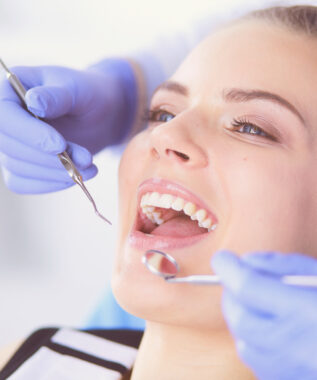 The symptoms that can sometimes develop from TMJ (temporomandibular joint) disorder aren’t always obviously connected to your jaw health. Though the condition directly impacts the health and function of your jaw joints, the results of it can include discomfort in areas throughout your head, neck, face, shoulders, and more. Today, we explore a few of the things that could be the result of a TMJ disorder, and that might warn you of the dysfunction if you don’t already know you have it.
The symptoms that can sometimes develop from TMJ (temporomandibular joint) disorder aren’t always obviously connected to your jaw health. Though the condition directly impacts the health and function of your jaw joints, the results of it can include discomfort in areas throughout your head, neck, face, shoulders, and more. Today, we explore a few of the things that could be the result of a TMJ disorder, and that might warn you of the dysfunction if you don’t already know you have it.
Headaches that you can’t explain
Your jaw’s movement requires the interaction of many different factors of your oral health. For example, your TMJs are the joints on which your lower jaw hinges and moves. The muscles surrounding the joints power this movement, and the large group of nerves (trigeminal nerves) near your TMJs control it all. When you have TMJ disorder, the dysfunction of your jaw joints can cause varying levels of aggravation of these nerves, and one of the common results of this aggravation is the development of chronic headaches. The discomfort can grow worse and lead to frequent migraines if the TMJ disorder continues to progress.
Problems when you bite and chew
When your TMJ’s aren’t aligned with each other or have trouble functioning properly, recurring discomfort (such as jaw pain and headaches) can be common. However, in addition to chronic pain, a more telling sign might be the impact the disorder has on your bite’s ability to function comfortably. When healthy, the two TMJs on either side of your jaw move together at the same time and to the same degree, allowing both sides of your jaw to move together. TMJ disorder can disrupt this balance, and you may notice it as your jaw shifts and tries to accommodate the discrepancy every time you bite and chew.
The development of additional bite problems
Because every aspect of your bite function is intricately connected with every other aspect, TMJ disorder can sometimes be the start of one or more other complications with your oral health. For example, an imbalance in your bite and the stress on your jaw joints may lead to chronic teeth-grinding, or bruxism, which can exacerbate the jaw dysfunction and cause damage to your tooth structure. If your bite doesn’t feel right, or if you experience noticeable shifting, popping, and/or clicking in your TMJs when you bite and chew, then these may be signs that TMJ disorder is negatively impacting your bite function.
Learn how we can alleviate your TMJ disorder
When you develop a TMJ disorder, the symptoms can include more forms of discomfort than you might realize, making the condition difficult to identify on your own. To learn more, schedule an appointment with us by calling Dreem Dentistry in Leawood, KS, today at 913-681-5500. We also serve patients who live in Overland Park and all surrounding communities.






